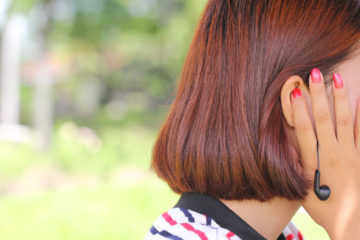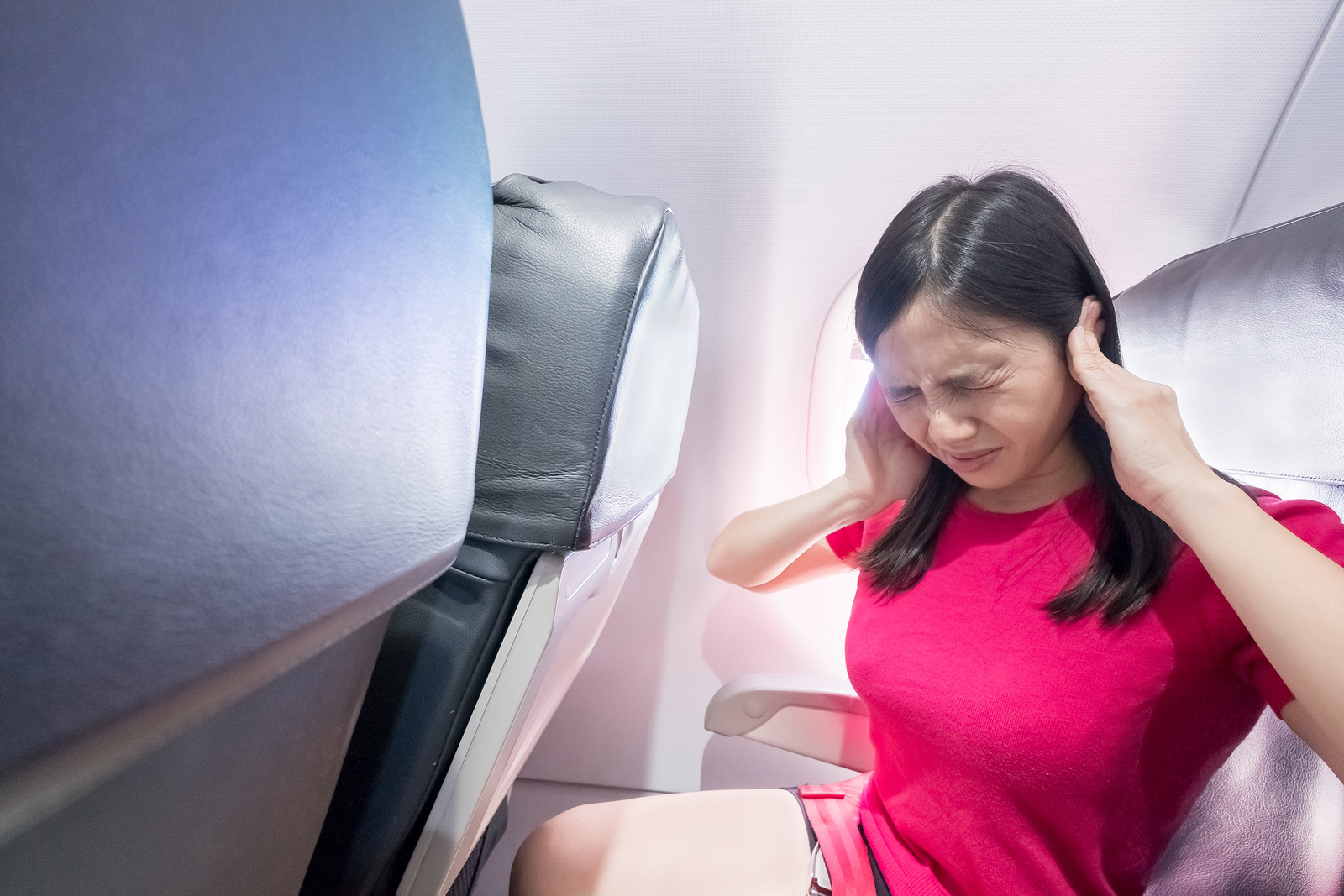How to Charge AirPods Without a Case
Discover the truth about how to charge AirPods without a case. Uncover myths, find alternatives, and safeguard your audio experience.

For those suffering from Tinnitus, it can be very difficult to listen to music or even carry on with their normal lives. (Depending on the severity). Although the causes of Tinnitus are many (even ones that seem unrelated to the ears), ear infections and hearing loss are a couple of the top contenders.
With this in mind, you might be wondering: is it okay to wear headphones or earbuds and listen to music while suffering from a bout of Tinnitus?
Thankfully, yes. Wearing headphones will not cause or worsen Tinnitus. You can keep listening to music or podcasts even when enduring a short spell of Tinnitus.
However, you need to be careful and prevent your headphones from hurting your ears any further. So in that regard, I’ll cover some relevant topics such as:
Let’s begin.
As I said before, Tinnitus is a very complicated medical condition. It can trigger due to several incidents and medical issues. As I mentioned previously, one of the more “obvious” reasons that cause Tinnitus is wearing headphones (and using them) incorrectly.
However, you might not be familiar with the symptoms, so before we talk about the impact of headphones, let’s glance at a few common symptoms.
Apart from the most common phantom ringing, other symptoms of Tinnitus include hearing other sounds such as:
In most cases, these noises can only be heard by the affected patient (subjective Tinnitus), although sometimes, a doctor can also hear these sounds using a stethoscope (objective tinnitus).
On average, these noises will go away after 16-48 hours, but in worst-case scenarios, they can linger for almost two weeks nonstop.
The simple act of wearing headphones is not the root cause of Tinnitus. Instead, it is how they are used during long periods.
Let’s face it, headphones are not the most “organic” method to listen to music. Under ideal circumstances, we would be listening to music via loudspeakers. Unfortunately, we cannot carry our party speakers or the self-sufficient solar-powered Bluetooth speakers everywhere. Therefore, we slightly compromise our aural health (ear health) by resorting to headphones and buds, especially in public spaces. (In favor of better sound quality and social acceptance.)
Excluding open-backs and bone-conduction headphones, all other types of headphones completely cover your ears and ear canal. As a result, your ears won’t have much room to breathe, creating a host of other problems such as:
So when you put on headphones for extended periods, without taking regular breaks, your ears can hurt, cause headaches, develop infections and even make you dizzy.
Unfortunately, wearing headphones incorrectly is only half the issue. On top of that, you’ve also got to manage the volume of your devices to prevent hearing loss.
Loud sounds from headphones and earbuds are one of the most common factors that can cause hearing damage in children and adults. Although hearing loss used to be an issue prevalent among seniors due to old age; nowadays, more young people are showing signs of mild-moderate hearing loss. The reason for this discrepancy is permanent hearing damage caused by listening to loud music and sounds.
Children start using headphones at an early age, and when there is not much supervision, they tend to overuse headphones either by listening to loud music or by keeping them on for extended periods.
That said, there are multiple reasons why anybody would suffer from Noise-Induced Hearing Loss (NIHL); these can be categorized into two groups: being exposed to a one-time loud noise (such as an explosion) or prolonged exposure to loud noises (such as working in a loud workshop/office, attending a loud concert, listening to music at louder volume, etc.)
Regardless of the time frame, being exposed to high volumes (without proper hearing protection) can strain the auditory system and cause permanent damage to the hair cells. (Both in the outer and inner ear.) On top of that, loud music or background noise can even perforate the ear drum and make the listener more vulnerable to infections, other injuries (headaches, nausea, dizziness), hearing impairment, and Tinnitus.
Although a majority of children are conscious enough to listen to music at a safe volume, a Swedish study has found that almost 10% of adolescents overuse headphones by listening to music at abnormally high volumes for longer periods (even while sleeping.)
From what we’ve gathered so far, we can conclude that headphones do not cause Tinnitus, and we can safely listen to music, watch a video or enjoy a podcast without worrying.
However, we need to be careful in how we handle our headphones; overusing them can trigger Tinnitus or other ear-related issues. So in this next section, let’s talk about how someone suffering from Tinnitus can use headphones without aggravating their condition.
If your Tinnitus is intermittent, not too distracting, and you are not required to put on hearing aids, you will be able to use headphones comfortably. As I said, the simple act of putting on headphones is not what causes Tinnitus; it’s for how long and how loud you play music on them.
Here are some practices you can adopt so you can enjoy your headphones in moderation.
There are two things you should never listen to: the haters and music at high volume. Thankfully, you can control the latter, and it’s the most concerning.
Noise-Induced Hearing Loss is a big issue, and for someone with Tinnitus, it’s the last thing you want to have, especially when it’s so tempting to pump up the volume and drown out those annoying phantom noises.
Typically, most headphones come with volume levels that correspond from 75dB-130dB, and the WHO recommends using them at a 20%-30% volume level (Approximately 85dB) for safe listening.
Listening to audio that’s louder than 85dB for extended periods can exacerbate your Tinnitus or hearing loss condition. In extreme cases, it can also cause permanent hearing damage without the listener being aware.
So always make sure to keep the volume down before enjoying your music. If you need to pump up the volume a bit further, a good rule of thumb is to follow the 60/60 rule; listening to 60% of maximum volume for only 60 minutes and taking a break for another 60. (At lower volumes, it’s okay to keep listening for longer.)
Also, when you are at a rock concert, don’t sit directly in front of the loudspeakers, this is not the best concert seat and the sound level is too intense for anybody with hearing problems.
That said, some of you may have trouble hearing music when traveling or working where there’s a lot of background noise (bullpen offices, train stations, airplanes, etc.)
In that case, it’s best to get a pair of Active Noise-cancelling Headphones like OneOdio’s A10 because they will help drown out the background and create some form of hearing protection for your ears. Some even believe that noise-canceling headphones help improve Tinnitus.
I recommend active Noise-Cancelling Headphones over conventional open-backs or closed-backs because you won’t have to pump up the volume in an attempt to drown out the ambient noise. Depending on the severity of your Tinnitus condition, it can also provide some form of relief or “sound therapy.” (ANC headphones are amazing at creating white noise, try it out via Spotify or other mobile apps.)
Want to know more about how active noise-cancelling headphones create sound waves that cancel out ambient noise? Check out this article.
Although open-back headphones and earbuds have their advantages, closed-back headphones (with or without the active noise cancelling feature) are the better option for listeners who suffer from Tinnitus.
Closed-back headphones are, by design, better at blocking out external noise than open-back headphones. They are more comfortable than on-ear headphones and don’t dig too deep into your ears like in-ear headphones/earbuds.
Overall, they are the best choice for someone with Tinnitus as they will be able to use closed-back over-the-ear headphones at a safe volume no matter where they are.

middle aged woman feel tinnitus in the airplanes
Tinnitus is a medical condition where the patient suffers from a constant ringing sensation in their ears. Although its exact causes are unknown, many experts believe that it has something to do with the brain trying to compensate for hearing loss.
Therefore, most healthy children and adults experience tinnitus when they have been exposed to loud sounds. In most cases, the ringing goes away, but depending on the severity of the hearing loss condition, Tinnitus sufferers will have to endure weeks of constant ringing.
Other than exposure to loud sounds, ear infections, injuries, certain medications, and old age can trigger Tinnitus.
Here are a few things you can do to make sure you never suffer from Tinnitus or aggravate an existing episode:
It doesn’t matter which types of speakers you use (headphones, earbuds, or loudspeakers), if you listen to music at loud volumes, while suffering from Tinnitus, you will definitely make things worse.
Gaming or mixing audio is not something you can do for thirty minutes or so. Most people spend more than six hours a day in front of a computer wearing headsets or studio headphones. If this is you, and you have tinnitus, I recommend always taking regular breaks and listening to music/sounds at low volumes.
Depending on the person, tinnitus can be a minor annoyance or something that interferes with daily life, and for audiophiles, this may seem like a death sentence.
If you wear comfortable headphones, take regular breaks, and listen to audio at lower volumes, you will be fine for the most part. That said, if your Tinnitus condition doesn’t seem to get better, I highly recommend getting a doctor’s opinion.